New 2018 State of Sustainability in America 16th Annual Consumer Insights & Trends Report
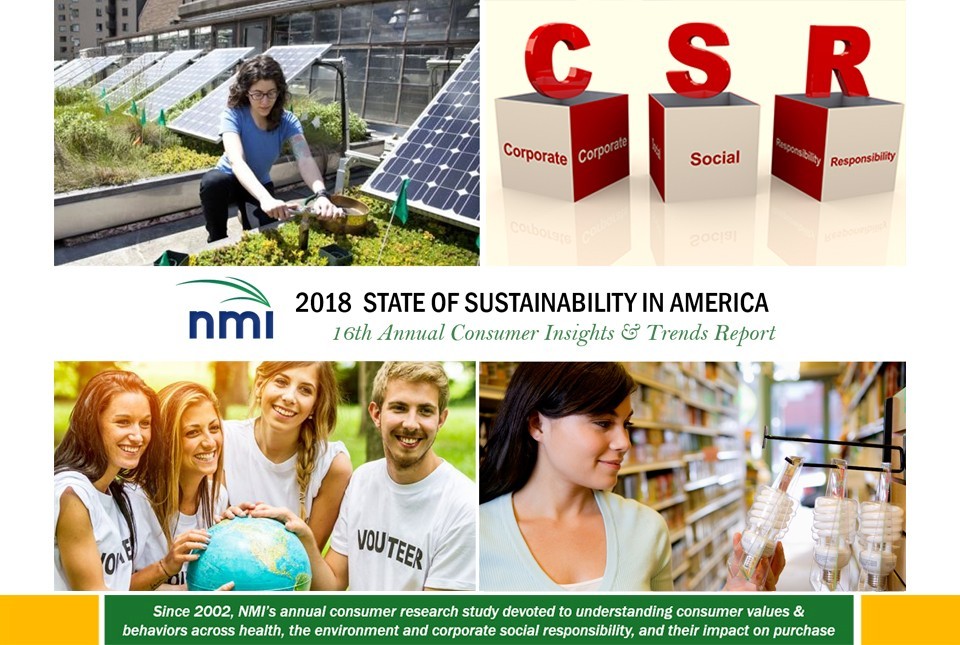
100+ pages of current consumer insights with data and analysis, including charts, graphs, illustrations!
Single BRAND Site License: Includes PDF, PPT with access to charts and site rights for internal network usage across one company BRAND/location.
Price: $5,000 Order Report
Multiple BRAND Site License: Includes PDF, PPT with access to charts and site rights for internal network usage across more than one company BRAND/location.
Price: $10,000 Order Report
16 Years of Sustainability Marketplace Insights
This report is the sixteenth annual U.S. report NMI has published on the state of the sustainability market. It examines consumer attitudes and behaviors toward sustainable living and the sustainable marketplace as a whole.
Over the past 16 years, a significant marketplace shift has occurred. This research uncovers insights into how today’s consumer integrates eco-friendliness into their daily life and reveals their motivations and the challenges they encounter in their pursuit to become increasingly aligned with a more sustainable lifestyle.
Steve French, NMI Managing Partner shares that the intent of this report is to provide a longitudinal understanding of how consumers’ attitudes affect behavior and translate into product and service usage. Even further, its aim is to provide insights regarding what drives this market, how to communicate with consumers and help identify the strategic opportunities in this ever-widening industry. It is this knowledge and insight that provide the basis for identifying and uncovering opportunities in the LOHAS marketplace.
This report provides a comprehensive overview of where the current sustainable marketplace stands, in addition to...
- how consumers interact in the green marketplace
- the return on investment of companies' sustainability initiative
- how segments within society view sustainability differently and what motivates this differentiation
- consumer insights regarding packaging and waste
- the impact of Millennials
- opportunities for future growth
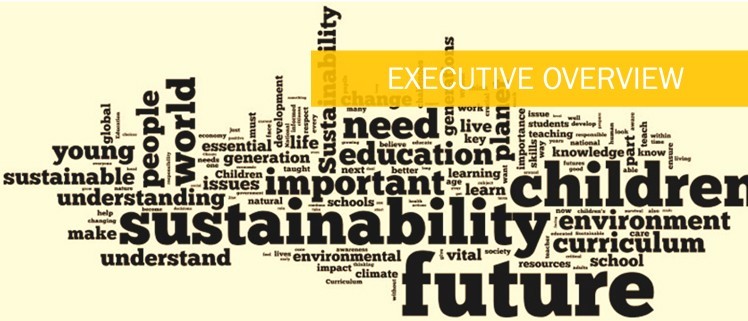
Today’s notion of sustainability marks a cultural shift as it continues to gain groundswell in America. All organizations, therefore, will need to realize that sustainability is not just a desired activity but a necessary strategy.
Even with all the recent mass media attention to global warming, specific consumer segments in the population exhibit various shades of green that are led by the LOHAS segment, who is integral in driving sustainability to the mainstream. Almost all products and services need to consider consumer motivations regarding eco-friendliness; however, sustainability affects consumers at varying levels, so targeting and communications is more vital than ever.
Sustainability is also causing ‘disruptive innovation’ across many industries, creating new markets above and beyond existing ones such as ‘car sharing’ replacing car ownership. Such disruption may actually capture a new or underserved consumer in some cases and further the concept of conscious consumption.
Demand for product transparency is clearly on the rise, and brands that fulfill this demand by providing comprehensive information from sourcing, manufacturing and social cause efforts are positioned to gain favor.
Even with the mainstreaming, many consumers display qualities of being overwhelmed and continue to need personal empowerment. While consumers say they want proof, most do not recognize seals and certifying organizations, or understand what they mean. This, in turn, makes some consumers skeptical of whom and what they can trust.
Consumers are also more interested than ever in aligning their personal values with the brands they buy, raising the bar for companies to clearly define and articulate their values. If consumers are aware that companies are mindful of their impact on society and the environment, it positively impacts their trial and repeat purchasing behavior and lessens price sensitivity.
Like every generation that came before, Millennials come with their own set of characteristics that make them unique. They demand genuineness and transparency, value social networking, are highly influential and even expect to participate in product development so that companies ‘do it right’. Their sheer size alone coupled with their unique qualities are causing a whole realignment of how business is conducted. Companies need to stay attuned as no company can afford to ignore their enormous purchasing power.
The sourcing and ‘end life’ of packaging will become significantly more relevant as the product life cycle and waste impact are increasingly becoming part of consumers’ purchase decisions. Product packaging, especially plastic, will continue to move toward that which is compostable or bio-based so it can assimilate back into the supply chain.
One entry point to environmentalism may be through “tangible” or visual issues such as litter or blight; if so, messaging about the connection between visible issues and non-visible issues, such as global warming, may ignite continued environmental engagement.
Consumers’ tolerance for chemicals is waning as the perceived link between chemicals and disease is increasing in consumers minds. Fewer additives, fewer negatives, fewer chemicals and less artificiality will drive the ‘clean label’ platform whose appeal is broadening across America.
Technology and services to help consumers monitor energy consumption, manage food waste, among others, will continue to innovate putting more control into consumers’ hands.
Eco-consciousness will continue to deepen as consumers find it easier and more important to take action. Organizations that facilitate that behavior will be rewarded by consumers who seek to align their purchases with their personal values, morals, ethics and belief systems
table of contents lohas

U.S. Sustainability Consumer Trends Database Overview
Definitions of Groups
Introduction
Executive Overview
Reaching the Target
Status of Sustainability in Today's World
NMI's Sustainability Segmentation
Overview of Sustainability Segmentation
Sustainability Segmentation Model Methodology
Five Distinct Sustainability Segments
Overview of the LOHAS Segment
Model of Sustainability Mainstreaming
Sustainable Mainstream Definition
Key Differences between Sustainable Mainstream and LOHAS
Levels of 'Green' across Segments
Understanding LOHAS Leaders and Followers
Early Adoption Behavior
Distinctions of LOHAS Leaders and Followers
Role of Price across LOHAS Leaders and Followers
Global Warming Attitudes across LOHAS Leaders and Followers
LOHAS Consumer Profile
NATURALITES Consumer Profile
DRIFTERS Consumer Profile
CONVENTIONALS Consumer Profile
UNCONCERNEDS Consumer Profile
Today's Sustainably-Engaged Consumer
Overview of Today's Sustainably-Engaged Consumer
Considering Sustainability in Decision Making
Concern for Environmental Issues
Participation in E-Friendly Behaviors
Perceptions of Personal E-Friendliness
Concern for Social and Environmental Issues
Growth in Concern for Environmental Issues
Concern for Animal and Plant Life
Concern for Global Warming
Concern for Water Issues
Concern for Waste Issues
Growth of Social Issues
Concern for Socially Responsible Business
Concern for Local vs. Global Issues
Impact of Price Regarding Social and Environmental Issues
Perceptions of Personal Responsibility for Environment
Impact of Peer Pressure on E-Friendly Responsibility
Behaviors of Past Generations on Future Responsibility
Consumer Action: Making Their Voice Heard
Overview of Consumer Action
LOHAS Consumers as Influencers
Sustainable Product Choice
Initial E-Friendly Purchase
Reasons for E-Friendly Product Purchase
Interest in Purchasing E-Friendly or Natural Products
Trended Interest in E-Friendly Product Purchase
Interest in E-Friendly Product Purchase across Segments
Concern Regarding Chemicals in Products
Importance of Food and Beverage Attributes
Importance of Household Cleaning Product Attributes
Importance of 'GMO-Free'
Disconnect in Interest and Purchase of E-Friendly Products
Barriers to E-Friendly Product Purchase
Awareness of Environment-Related Terms
Merchandising Preferences of E-Friendly Products
Willingness to Sacrifice for E-Friendly Products
Sources of Influence of Sustainable Purchase
The Value of Corporate Action
Overview of Corporate Action
Interest in Corporate Social Actions
Interest in Corporate Environmental Actions
Growth in Interest in Corporate Actions
Impact of Corporate Action on Trial and Purchase
Expectations of Corporate Responsibility
Impact of Cause Marketing on Purchase
Skepticism of Corporate Initiatives
Confusion Regarding Certifications and Seals
Impact of Certifications and Seals on Purchase
Perceived Leader in Environmental Protection
Trust in Environmental 'Protectors'
Validating Corporate Actions
Boycotting Behavior
Ratings of Companies' Corporate Citizenship
Global Concern for Corporate Social Responsibility
Impact of Millennials
Overview of Impact of Millennials
Millennial Engagement in the Environment
Millennial 'Say-Do' Gap
Peer Pressure and Millennial Environmental Involvement
Disconnect in Attitudes and Behaviors
Relation of Technology and Sustainability
Technological Influencers of Sustainable Purchase
Impact of Technology on Health Monitoring
Willingness to Pay a Premium
Waste, Recycling and Packaging
Overview of Waste, Recycling and Packaging
Concern about 'Visible' Waste
Perceptions of Waste Issues Compared to 1970's
Personal Action in a 'Wasteful Society'
Attitudes and Behaviors Regarding Plastic Bags
Attitudes Regarding Over-Packaging
Consumer Interest in Corporate Packaging Reduction
Preference for E-Friendly Packaging
Environmental Impact of a Product Lifecycle
Importance of E-Friendly Package across Products
Recycling Behavior
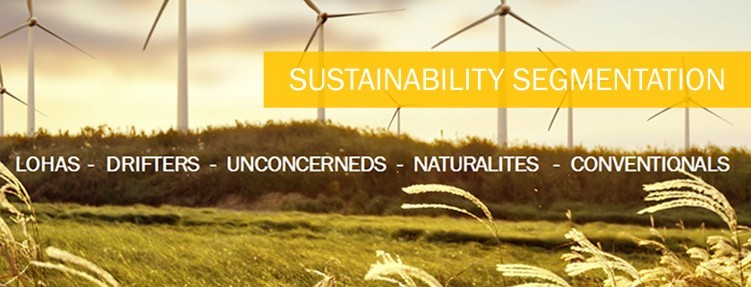
U.S. Sustainability Consumer Trends Database® (SCTD) Overview
Scope:
- Quantifies the size of the consumer market for environmentally and socially responsible products and services
- Measures the importance of environmental and societal issues as well as corporate social responsibility
- Explores environmentally conscious behavior
- Determines consumer usage of sustainable products and services
- Annual tracking study in U.S. since 2002 and globally since 2005
Methodology:
- 3,001 U.S. adults in 2017, nationally projectable to the U.S. adult population and accurate at the 95% confidence level to +/- 1.2%
- Conducted online, 3rd Quarter 2017
- 51,000+ U.S. consumers in database
- Conducted in 23 countries; 150,000+ global consumers interviewed
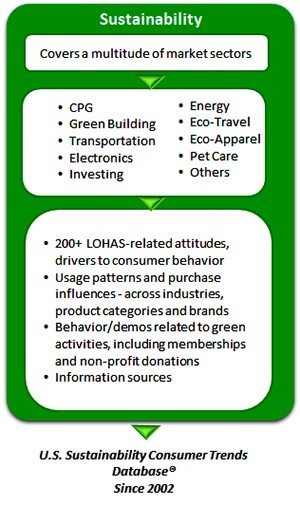

Throughout this report, it will become clear that while it is important to understand how best to reach your target audience it is also important to understand what sustainability message you are trying to communicate. Without such connection, strategies can be misaligned.
If your product or service is not inherently sustainable or considered ‘green’, but the organization is taking part in social or environmental programs, this can be a viable approach to take part in the market.
Social networking is almost a must for any marketing eco-campaign as it allows messages to spread quickly and also is an effective way to gain consumer feedback almost immediately. As indicated on the following pages, specific targets resonate more than others.
Regardless of the method used, it is important to get a trustworthy message out through any and all means available. And as will be shown, consumers want relevant, meaningful and proven eco-benefits for such messaging to resonate.
As consumer attitudes and behaviors surrounding sustainability continue to grow, companies involved in the green and sustainable marketplace should also see a growth in return on investment.
The basis for 'reaching the target' is NMI's Sustainability segmentation which is covered in depth, along with generational cohort insights and other consumer groups as relevant to the topic.
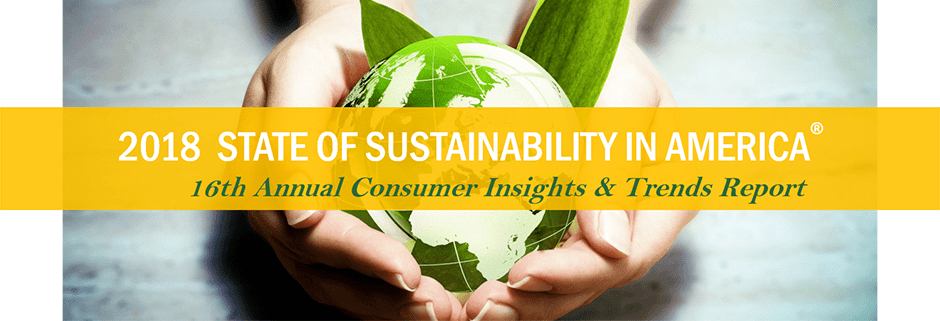
For more information, kindly contact Steve French, at Steve.French@NMIsolutions.com
